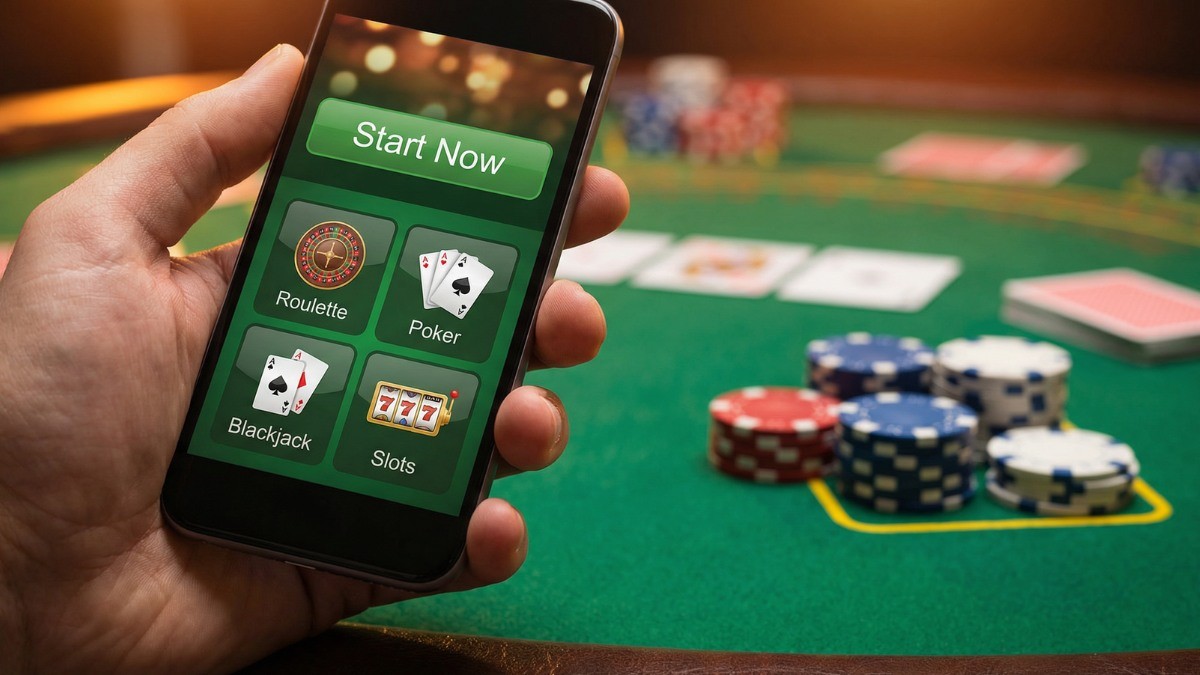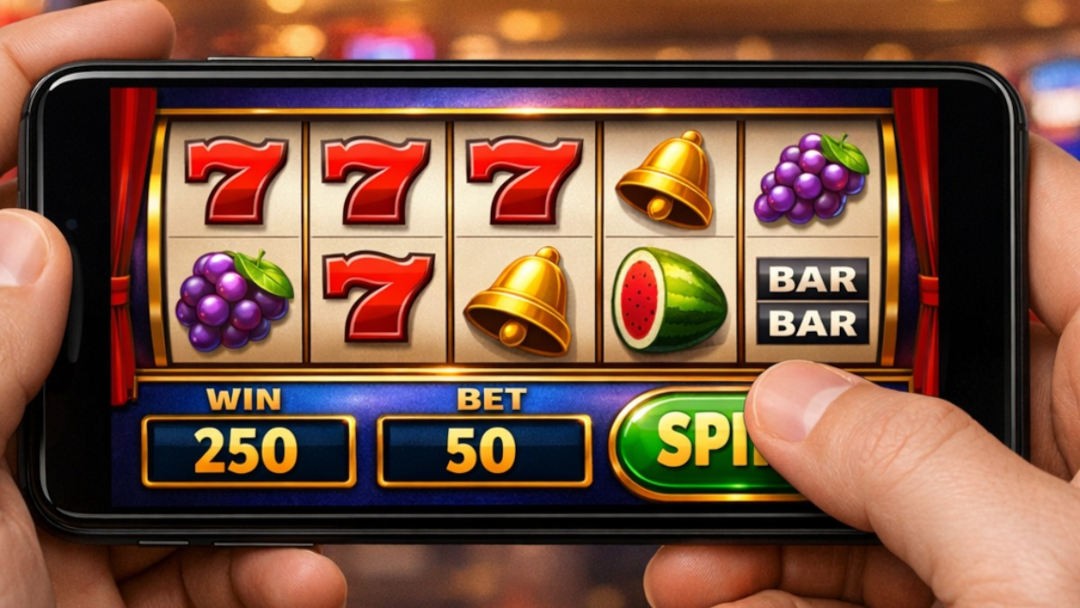
Why Low-Stakes Challenges Are the Future of Micro-Entertainment
Micro-entertainment has quietly become one of the biggest shifts in how we spend our downtime. We're talking about those quick hits of fun that slot perfectly between everything else, a five-minute puzzle during your coffee break, a daily challenge while you're waiting for the kettle to boil, or a casual competition with friends that doesn't eat up your whole evening. These experiences don't ask for much, but they still manage to feel genuinely satisfying. What we used to dismiss as "killing time" has evolved into its own legitimate form of entertainment. The common thread? People are drawn to low-pressure experiences that still deliver a sense of achievement and forward momentum.
Why Small Stakes Keep Users Coming Back
Low-stakes formats work so well because they plug straight into habits we've already formed. You open an app, knock out something quick, get that little dopamine hit of completion, and then carry on with your day. This pattern shows up everywhere, in mobile games, fitness trackers, and language learning apps. They're all built around these tight loops that give you frequent, bite-sized wins.
Here's where things get interesting, and it's worth looking at the online gaming space for context. A lot of platforms in that world have already figured out how low-commitment models can drive strong engagement over time. It's actually a perfect parallel for how micro-entertainment operates across the board.
This is why it's best to compare leading sites in 2025 if you want to understand this trend better. Industry expert Mandy Hamer highlights that many of the best platforms will typically offer players quick withdrawals, solid security, and game selections that feel approachable rather than intimidating. These are the same principles driving the broader move toward entertainment that's easy to jump into, comfortable to engage with, and worth coming back to.
The Shift Toward Micro-Moments
Here's the thing: most of our entertainment now happens in these tiny fragments of time. You know the ones. The three minutes while your lunch is in the microwave. The wait at the doctor's office. That gap between back-to-back video calls. We're not settling in for epic gaming sessions anymore. We're looking for something we can start and finish before our next obligation pops up.
Look at what Wordle did. One simple daily puzzle became a global phenomenon. It barely asked anything from players, maybe two or three minutes of your morning, but millions of people made it part of their routine. That's the whole game right there. Low pressure, high satisfaction, and small enough that it never feels like work.
That's the exact formula behind micro-entertainment. Give people something they can engage with right now, with zero barriers standing in their way. When it's that simple, habits form almost automatically.
Why Minimal Risk Works Better Than High Pressure
One of the most interesting behavioral shifts we're seeing online is this strong preference for low-risk participation. People still love competition, but they don't want it to feel stressful or overwhelming. If a challenge seems too big or asks for too much, most people will just scroll past it. But make it small and manageable? Suddenly, it feels not just doable, but actually appealing.
Fitness apps have nailed this approach. They're constantly encouraging you to walk just one more block, complete one tiny task, or beat yesterday's numbers by the smallest margin. That miniature victory is what keeps you showing up. It's never really about the size of the achievement; it's about feeling like you're moving forward.
Low-stakes entertainment follows the same playbook. It swaps intensity for accessibility, and in doing that, it ends up attracting way more people.
The Psychology Behind Small but Frequent Rewards
There's solid psychology behind why low-stakes challenges work so effectively. Our brains are wired to respond strongly to frequent, small rewards. They create this sense of progress without triggering any anxiety about failure.
You see this everywhere in productivity tools these days. Whether it's maintaining a streak calendar, checking off a daily goal, or "leveling up" in some gamified system, the actual reward is pretty symbolic, but it feels good anyway. It gives you that little hit of accomplishment, even though the step you took was objectively tiny.
This pattern is incredibly powerful because it builds momentum. Over weeks and months, those small wins add up to genuine loyalty, even though each moment feels completely lightweight.
How Low-Stakes Challenges Encourage Exploration
Here's another reason these models are thriving: they make people more willing to experiment. When there's minimal risk involved, trying something new feels safe. A quick daily challenge, a two-minute puzzle, or a simple skill-based task? Sure, why not give it a shot?
Streaming platforms use this logic brilliantly. Short-form video lets you sample tons of different content without committing to anything substantial. If something grabs you, great, you keep watching. If not, you scroll on with zero guilt. The low-stakes environment makes exploration feel natural rather than like a commitment.
Micro-entertainment thrives on this same dynamic. People will try new challenges simply because there's nothing to lose.
Why Flexibility Matters More Than Intensity
The real value of low-stakes formats isn't just that they're easy; it's that they're flexible. People want entertainment that molds itself around their day, not the other way around. A challenge that takes ninety seconds can fit literally anywhere in your schedule. Something that demands an hour? That requires planning and intention, and honestly, most of us don't have that kind of bandwidth most days.
This is why platforms offering short, self-contained experiences consistently outperform ones that require sustained focus or lengthy sessions. You can dip in and out whenever you have a spare moment, and you never feel like you're abandoning something half-finished.
Low-stakes challenges are actually designed to be interrupted, which makes them perfectly suited to the fragmented way we actually use our phones and devices.
The Social Element Behind Micro-Entertainment
Low-stakes formats also have a built-in social advantage; they're inherently shareable. When something's quick and easy, people actually want to send it to friends, try it together, or compare their results. A small challenge becomes an instant conversation starter.
Think about how app-based challenges spread. A simple "can you beat my score?" message is way more likely to get shared than some complicated multi-step competition. It drops the barrier for group participation super low, which makes the whole experience more engaging. Even small bursts of social momentum help keep users interested and wondering what's coming next.
The Future Belongs to Lightweight Engagement
As our digital habits continue evolving toward convenience and flexibility, low-stakes entertainment is only going to become more dominant. It matches how people actually live their lives right now, not some idealized version of how things used to be. It respects our limited time, scattered attention, and the natural rhythm of modern daily life.
Whether it's a pressure-free daily challenge, a quick puzzle, or a tiny skill-based game, the magic is in how small each step feels. People are dramatically more willing to stick with something when the commitment barely registers.
Low-stakes challenges aren't a passing trend. They're becoming the new standard.
Related Article Archives
Related Articles
Best Florida Gambling Sites: 15 Top FL Casinos in 2026
Posted Feb 12th, 2026
15 Best Mobile Casinos for Real Money and Smooth Gameplay (2026)
Posted Feb 12th, 2026
Top Female Online Poker Players Making Waves in 2026
Posted Feb 13th, 2026
The Shift from RNG to Live Interactive Gaming Environments
Posted Feb 13th, 2026
Winna Casino Review What Players Should Know Before Signing Up
Posted Feb 17th, 2026
How to Choose a Reputable Online Casino
Posted Feb 14th, 2026
Disclosure: This article contains sponsored content.

Table of Contents
- Why Small Stakes Keep Users Coming Back
- The Shift Toward Micro-Moments
- Why Minimal Risk Works Better Than High Pressure
- The Psychology Behind Small but Frequent Rewards
- How Low-Stakes Challenges Encourage Exploration
- Why Flexibility Matters More Than Intensity
- The Social Element Behind Micro-Entertainment
- The Future Belongs to Lightweight Engagement






